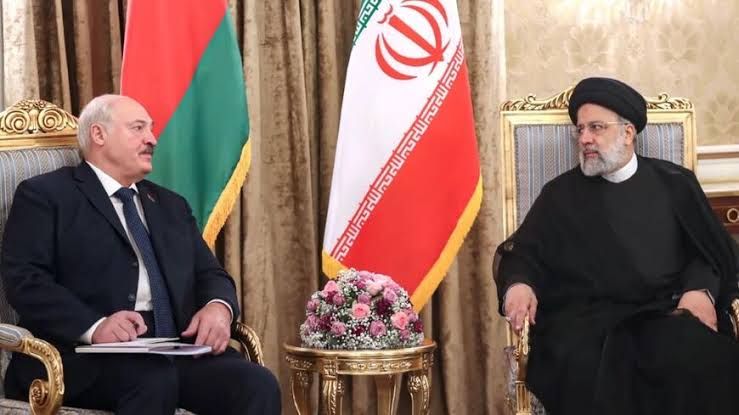Unholy Alliance: Belarus, Iran, and Russia Forge Disturbing Military Ties
Belarus and Iran appear to be deepening their defense ties, raising alarming implications for the geopolitics of Eurasia. Defense leaders from the two nations met in Tehran earlier this week to solidify their burgeoning military alliance. Belarusian Defense Minister Viktor Khrenin and his Iranian counterpart Mohammad Reza Ashtiani inked a

Belarus and Iran appear to be deepening their defense ties, raising alarming implications for the geopolitics of Eurasia. Defense leaders from the two nations met in Tehran earlier this week to solidify their burgeoning military alliance.
Belarusian Defense Minister Viktor Khrenin and his Iranian counterpart Mohammad Reza Ashtiani inked a Memorandum of Understanding, although the specifics remain shrouded in ambiguity. This move follows reports that Belarus is eyeing a production facility for Shahed drones, potentially contributing to Russia's ongoing military efforts in Ukraine.
The source of these drones is of particular concern. Recent analysis from the White House suggests that Shahed drones, which have been used in attacks on Ukrainian cities, are manufactured in Iran. The drones are then transported across the Caspian Sea and into Russian hands.
This drone delivery operation began last year and has effectively augmented Russia's arsenal of assault drones for the conflict in Ukraine. In exchange, Iran has reportedly been bolstering its military capabilities with assistance from Russia, including missiles, electronics, and air defense technology.
According to White House National Security Council Coordinator John Kirby, this military partnership between Iran and Russia is an “unprecedented defense cooperation.” Iran is also allegedly pursuing billions of dollars' worth of additional military equipment from Russia, including attack helicopters, radars, and YAK-130 combat trainer aircraft.
The potentially increased production of Shahed drones in Belarus could indicate the strengthening of Tehran-Moscow relations. This development comes in the wake of Moscow's suggestion that Iran's territorial dispute with the United Arab Emirates over the Hormuz Islands should be settled through negotiations, a suggestion that irked Iran.
The Kremlin, however, was quick to make amends, underlining the importance it places on its relationship with Iran, given the military assistance it receives in the Ukrainian conflict.
The proposed production of Shahed drones in Belarus implies that plans to manufacture these drones in Russia may have hit a roadblock. The expectation was for an automated production process to be established within two to three years. However, according to various sources, the process has so far suffered from unrealistic timelines and inadequate facilities.
Russia, Belarus, and Iran's deepening defense ties signal a reshaping of regional alliances with potentially profound implications for the power dynamics of the region and beyond. As these countries forge a stronger bond, it's vital that the international community remains alert and responsive.




